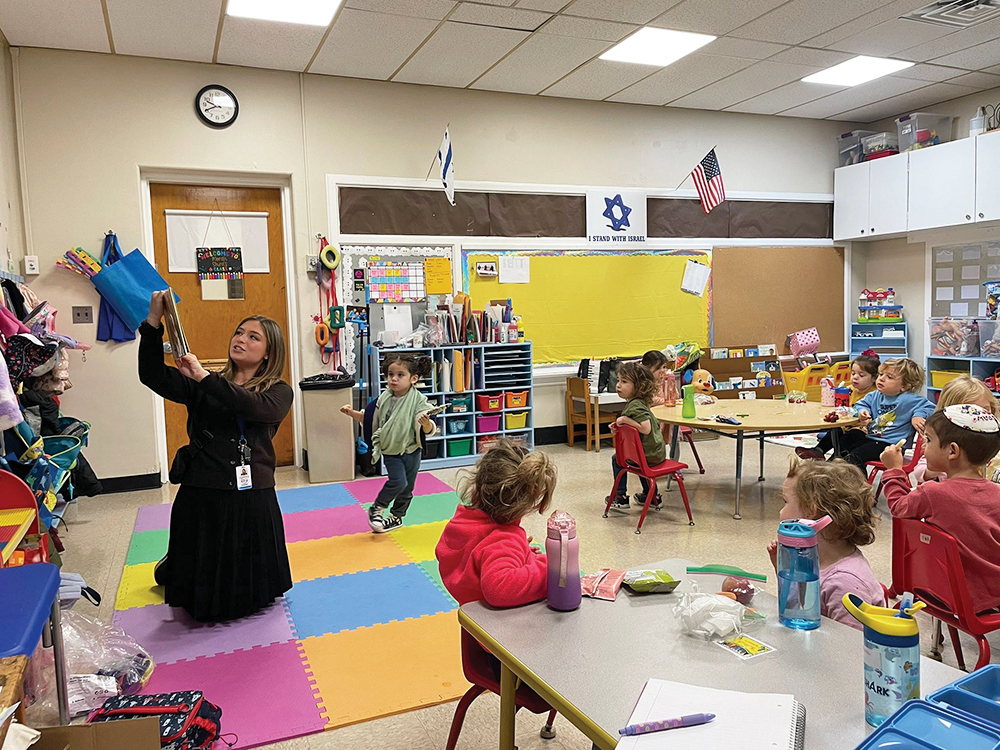The Jewish Link has learned that Rep. Josh Gottheimer (D-New Jersey) asked FEMA Director Deanne B. Criswell to eliminate the Social Vulnerability Index (SVI) from criteria for judging applications to the Nonprofit Security Grant Program (NSGP). This year represents the first time the SVI would be used on the application. The grant process for fiscal year 2022 opened this past May 13 and closed on May 22, 2022.
Many synagogues are in the process of hardening their targets, and this funding, which is used primarily to build security systems and to pay security guards at religious institutions, is seen by local politicians as literally the only defense that centers of all faiths have against active shooters, lone wolf terrorists, bomb threats and organized terror attempts.
The SVI appears to have nothing to do with nonprofits vulnerable to terror attacks, and more to do with “social vulnerability,” a Centers for Disease Control-created calculation that assesses risk for human-caused or natural disaster, poverty and disease outbreaks. In New Jersey, just 82 NSGP applications were approved for the last fiscal year, out of 300 institutions that applied. Multiple grant writers for Jewish institutions and synagogues in New Jersey were concerned they would be again shut out of the grants this year—not because the funding ran out, as it did last year—but because of the new criteria favoring institutions who live in high SVI regions.
In a letter obtained by The Jewish Link, Gottheimer wrote that “The risk of terror and violence perpetrated against vulnerable groups is ongoing and real. That risk cannot be captured through the SVI.” The three-term Democrat, who has represented Northern New Jersey in Congress since 2017, explained that he understood that communities with a high SVI may be encouraged to apply for the program because of this incentive, but that he doesn’t believe that it matches the legislative intent of the NSGP.
“My understanding is that this was a decision made at the administrative level, and not by legislative or executive mandate,” he wrote.
In recent years, the Orthodox Union, Agudath Israel of America and others have advocated for significant increases to the NSGP, which awarded just $20 million in grants in 2016. This year’s $250 million in grants available represents a stratospheric rise over last year, which granted $180 million in fiscal year 2021. The fiscal year 2023 budget includes a projected NSGP budget of $360 million.
“While encouraging new applicants is a worthy goal, the SVI is not an appropriate measure to utilize when the purpose of the grant program is to protect vulnerable institutions that have a demonstrated active threat against them,” wrote Gottheimer.
Gotthimer explained that the risk of terror and violence perpetrated against vulnerable groups is ongoing and real. “The Centers for Disease Control, which created the SVI, says it “refers to the potential negative effects on communities caused by external stresses on human health. Such stresses include natural or human-caused disasters, or disease outbreaks,” he wrote. “While SVI can be a powerful tool for good, it is not relevant to the NSGP and it should not be used to examine current applications.”
Gottheimer noted that earlier this year, members of a synagogue in Coleysville, Texas were held hostage at gunpoint, sending places of worship across the country into a state of high alert. He added that the recent and ongoing threats against Historically Black Colleges and Universities (HBCUs), and attacks against Jewish people and historically Black churches demonstrate the importance of providing these grants to the most threatened institutions. “The funds provided by the NSGP allow these vulnerable targets to protect their congregants and facilities,” he wrote.
“I ask that the decision to utilize SVI be reversed and that your agency’s leadership provide the rationale behind this initial decision,” Gottheimer concluded.












